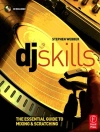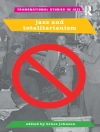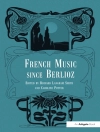Difference and Division in Music Education enriches existing diversity and social justice discourses by considering the responsibility of music education to respond to rising social discord and tensions. Although ‘hate’ is by no means a new concern for policymakers, educators, or musicians, the climate of fast communications, divisive politics, and intensified encounters with ‘difference’ has framed expressions of hate as a rising social problem to which we cannot afford complacency. This edited volume of ten contributed essays approaches ‘hate’ not as a monstrous aberration, but as a product of late modernity entangled within the complex power-relations that frame both governance and agency at the policy, institutional, and interpersonal levels.
Schools, universities, and community organisations have been positioned on the front lines of addressing ‘hate’ and cultivating a healthy society. In recognising that music education is always both inclusive and exclusive, this volume interrogates the social norms and values that comprise the ‘common good’ and simultaneously cast certain musics, expressions, individuals, or social groups as different, divisive, hateful, or hated. Difference and Division in Music Education highlights the ethical and political dimensions of teaching and learning music across a number of geographical, cultural, and educational contexts and through a rich variety of perspectives.












